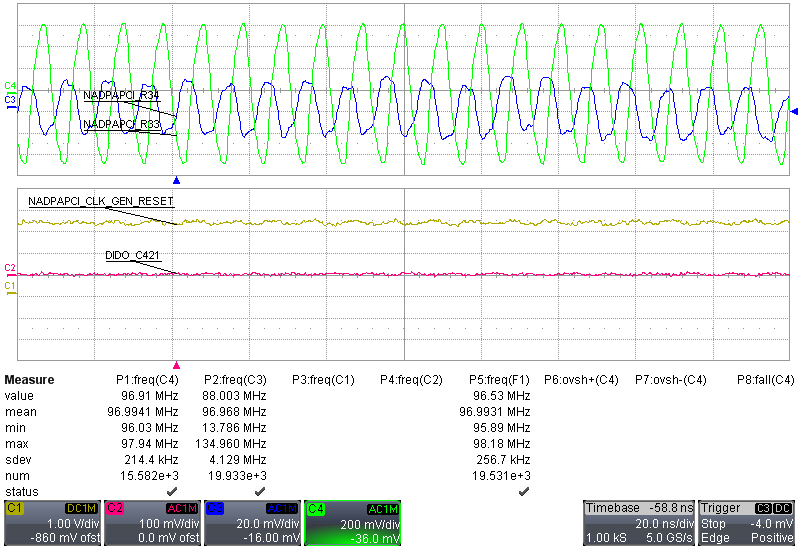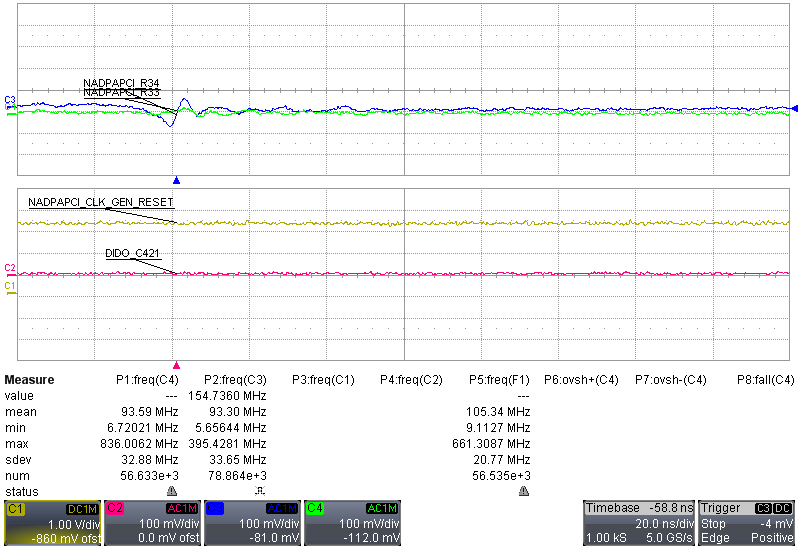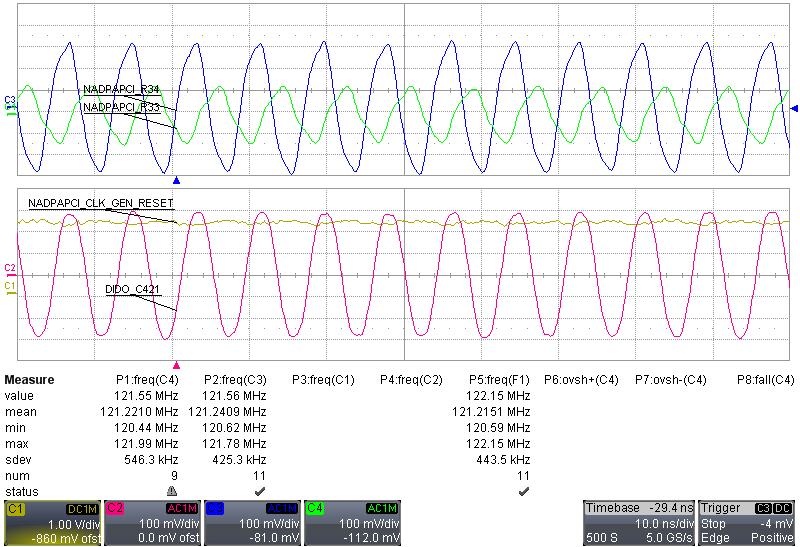Tool/software: Linux
Hi,
I have a question about a customer application based on a TMS320DM8148 processor, we've noticed an issue when trying to boot from cold temperature the kernel Linux with PCI enabled (CONFIG_PCI=Y).
Software hangs at
while (!(omap_ctrl_readl(TI814X_CONTROL_PCIE_PLLSTATUS) & 0x1))
cpu_relax();
in the file linux-omap3/arch/arm/mach-omap2/devices.c, waiting for PCIE PLL's lock.
The temperature which causes the issue can vary from each module, from ambient temperature down to 0°C (limit temperature for this P/N).
If we maintain the module powered, it warms up and boots after some minutes, if the reached temperature is hot enough.
The module is clocked with a 20MHz crystal oscillator and the SERDES signals are clocked with a CDCM61002RHBx chip delivering a 100MHz source.
Can you help us to understand what can cause this issues?
Thanks
Umberto





